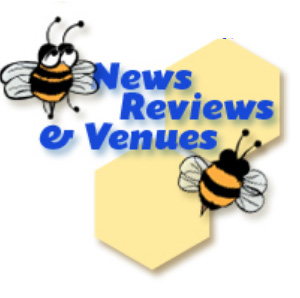

Click on BBKA logo above to visit their website


British Christmas Tree Growers Association

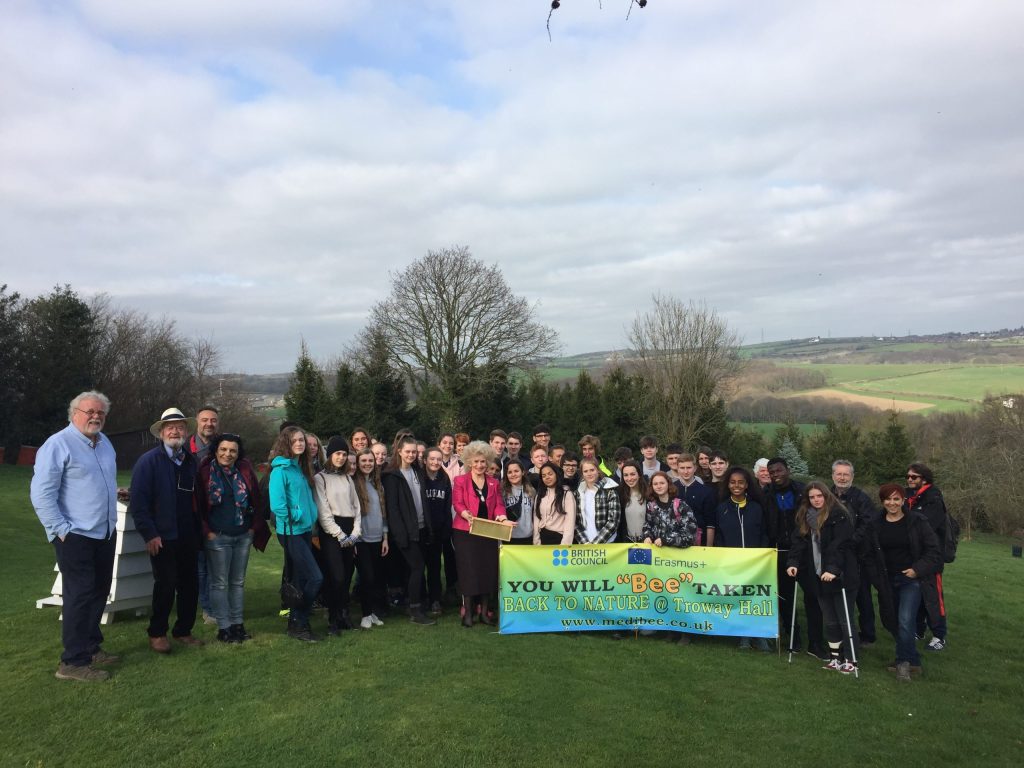
Reviews - honey
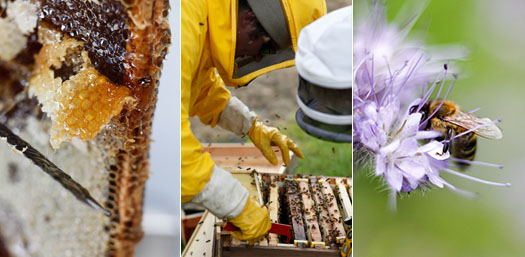
It is amazing – how few people really know what honey is.
Honey is derived from nectar. Nectar is produced by flowers, which is then collected by thousands of bees as they forage from flower to flower. This nectar is sweet and is only just slightly thicker in consistency, than water. The bees fill their stomachs with nectar where honey begins its formation. Bees have ‘super substances’ which are mixed with the nectar and eventually make honey the most remarkable substance on this planet.
Honey is imbued with antimicrobial substances (bioactive) which has been put to good use since man evolved. Ancient societies in China, Egypt, India and then Western Cultures used honey for repairing wounds all the time – let’s face it, at that time there was nothing else.
Hippocrates, the father of modern medicine who lived 2,300 years ago, strongly believed in the bioactivity of natural honey and used it to repair ‘ulcers and chancres’ of the skin – remember that the hygiene that we enjoy today would be seen as bizarre and unbelievable in ancient Greece.
Honey dressings are now being used by the NHS.
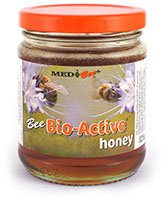 Honey is undergoing a rebirth and by natural honey – we mean honey that is totally unprocessed and untreated – straight from the beehive – not mass produced blends which have been heated and reheated which are commonly found on supermarket shelves. Natural honey assists the body to repair and make good damaged tissue – as used by Man for centuries.
Honey is undergoing a rebirth and by natural honey – we mean honey that is totally unprocessed and untreated – straight from the beehive – not mass produced blends which have been heated and reheated which are commonly found on supermarket shelves. Natural honey assists the body to repair and make good damaged tissue – as used by Man for centuries.
Some honeys, especially extracted from one plant source can have exceptional intrinsic restorative properties.
Generally the darker the honey the higher the antibacterial content.
Unprocessed and untreated honey is back with a vengeance! Would you want any other?
Reviews - pollen
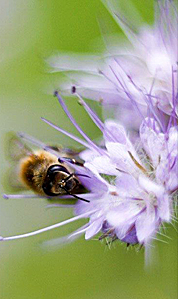 Did you know that?
Did you know that?
a: Without bees we would all starve.
b: Two out of three mouthfuls of your food is thanks to bee pollination.
c: Pollen is nature’s No1 food.
d: Pollen contains many nutrients, it is the baby milk for the baby bees.
e: Pollen is a High Protein food..
f: Pollen is a Source of Iron.
Remember – there are two types of pollen
1: Airborne pollen which is released and distributed by wind and air currents and has an immense impact on our nation – whether its source is from oilseed rape, trees, grasses or weeds. Which one causes you the greatest grief?
Did you know that citydwellers are allergic to airborne pollen more than those who live in the country? ‘Why?’ you ask, ‘when surely there is more airborne pollen from hedgerows and field crops in the countryside’. Pollution from cars and particularly nitrous oxide gas, damages the mucous lining of our noses, making it more sensitive to pollen breathed in. Poor citydwellers! MediBee Pollen capsules contain natural bee pollen from various plant sources – would you want anything less?
2: Bee pollen which has been collected by bees and has added secretions which is then taken back to the hive in order to feed thousands of baby bees. Remember that pollen and honey alone, are the only food sources for the whole bee population and has been for the last 50 million years – wow!
It is this bee pollen which is collected for MediBee’s Pollen Plus capsules which should be taken every day as a food supplement when high pollen counts are expected and exist (a must during spring and summertime).
Note: Dr Pamela Ewan, Consultant in Allergy at Addenbrooke’s Hospital, Cambridge, has stated that desensitisation to tree pollen was successful when sufferers took tree pollen by mouth.
Bee pollen contains:
35% protein
35% carbohydrate
35% fatty oils
15% amino acids
35% water
PLUS Pollen is High Protein and a Source of Iron.
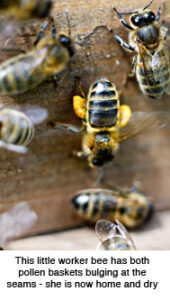 Isn’t Nature just wonderful?
Isn’t Nature just wonderful?
Bee Pollen as a food source is just excellent and is probably second to none to all other foods.
Don’t you deserve the best?
Consult MediBee’s Bee Activ and Bee Better
